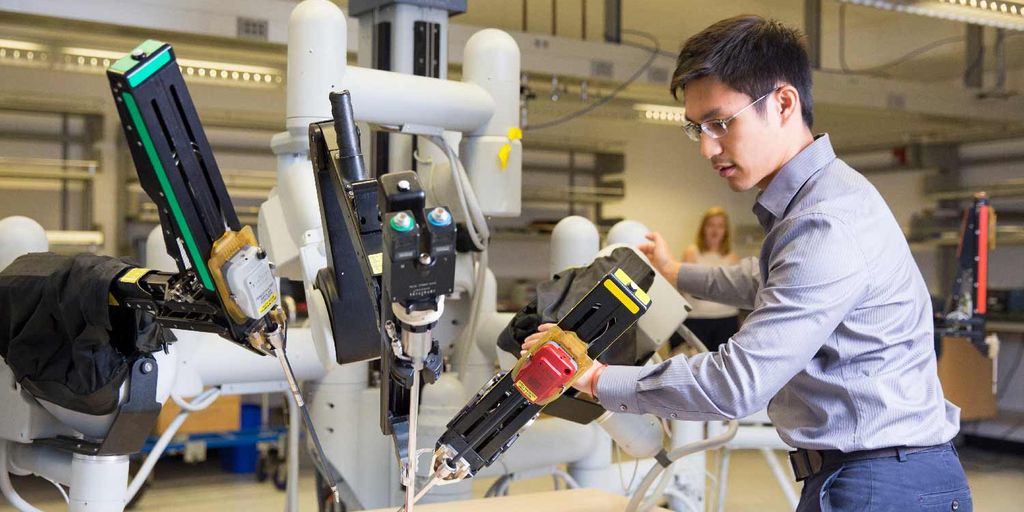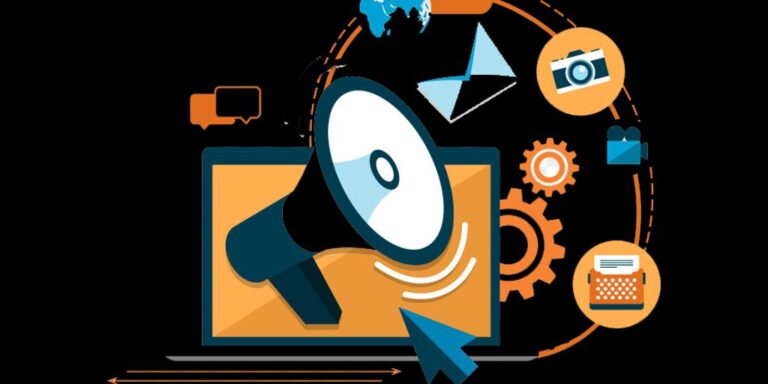In the rapidly evolving world of technology, AI nude generators have emerged as a controversial innovation. These tools, capable of transforming clothed images into nude variants, have sparked significant ethical and privacy debates. This article delves into the multifaceted implications of these technologies, exploring their potential for both harm and advancement in digital ethics.
Key Takeaways
- AI nude generators raise critical privacy and ethical concerns.
- The technology can be misused for non-consensual content creation, posing significant risks.
- Legal frameworks currently lag behind technological advancements, necessitating urgent updates.
- Educational and regulatory measures are crucial in mitigating potential harms.
- Engagement with expert communities and continuous dialogue is essential for responsible development.
Understanding the Naked AI Generator
Definition and Functionality
The Naked AI Generator, such as Nudify.Online, is a type of technology that uses advanced algorithms to digitally alter images to appear as if the subject is undressed. These tools leverage deep learning techniques to analyze and manipulate visual data, creating realistic and often convincing nude images. Initially developed for purposes like art and medical research, their potential for misuse raises significant ethical and privacy concerns.
Technological Foundations
The technological backbone of Naked AI Generators involves complex machine learning models and neural networks. These systems are trained on vast datasets of images to accurately predict and replicate human anatomy under clothing. This training allows the generators to produce images with a high degree of realism, which can be both impressive and alarming.
Current Applications
Currently, Naked AI Generators are used in various fields including art, fashion, and medical visualization. However, their ability to create nude images from clothed photos has also led to controversial uses, potentially invading personal privacy and deepening ethical dilemmas. It is crucial to balance innovation with ethical considerations to prevent harm and misuse of this technology.
Privacy Concerns with Naked AI Generators

Invasion of Personal Space
The rise of AI nude generators has sparked intense debates about privacy, consent, and the potential for misuse. Critics argue that these tools violate individuals’ privacy rights, as they can manipulate and expose personal images without consent. There are concerns about the potential for harassment, revenge porn, and the creation of non-consensual explicit content.
Legal Implications
Creating simulated child abuse imagery is illegal in the UK, and Labour and the Conservatives have aligned on the desire to ban all explicit AI-generated images. This legal stance underscores the urgent need for comprehensive regulations to address the privacy violations and potential harms caused by naked AI generators.
Preventive Measures
To mitigate the risks associated with naked AI generators, several preventive measures can be implemented:
- Regular monitoring of AI activities to ensure compliance with ethical standards.
- Development of user verification processes to prevent misuse by anonymous entities.
- Implementation of content filters to block the generation of explicit images without explicit consent.
Ethical Dilemmas in AI-Generated Nudity

Consent and Autonomy
The core ethical issue with AI-generated nudity revolves around consent and autonomy. Individuals may not be aware that their images are being used to create nude content, which raises significant concerns about personal autonomy and the right to control one’s own image.
Misuse and Abuse
The potential for misuse of AI nudifiers is vast, ranging from harassment to the creation of non-consensual explicit content. This misuse not only violates privacy but also poses serious ethical and legal challenges.
Balancing Innovation with Ethics
While AI nudification technology offers new possibilities in digital media, balancing these innovations with ethical considerations is crucial. Stakeholders must navigate the fine line between leveraging technology and respecting individual rights.
It is essential to navigate this field responsibly, respecting privacy, consent, and ethical considerations.
The Societal Impact of Naked AI Generators

Cultural Sensitivities
The deployment of naked AI generators has ignited significant cultural debates, highlighting the clash between technological advancement and traditional values. In many cultures, the creation and distribution of nudity are highly sensitive issues, often intertwined with legal and moral norms. This technology challenges these norms, prompting a reevaluation of cultural boundaries and the need for respecting privacy.
Impact on Relationships
Naked AI generators can profoundly affect personal relationships, introducing distrust and potential harm. The ability to create non-consensual explicit content can lead to scenarios of misuse, such as revenge porn or harassment, severely impacting the trust and safety within relationships. It is crucial to explore alternatives to ensure that these technologies are used responsibly and ethically.
Public Perception
Public opinion on naked AI generators is deeply divided. While some view these tools as a form of artistic or personal expression, others see them as a direct threat to personal dignity and autonomy. The widespread use of such technology could lead to a significant shift in how society perceives privacy and consent in the digital age. It is essential to engage in constructive dialogues to shape the future of these technologies in a way that balances innovation with ethical considerations.
Regulatory Landscape for Naked AI Generators

Existing Laws and Regulations
Current legal frameworks struggle to keep pace with the rapid advancements in AI technologies, including naked AI generators. Most jurisdictions lack specific laws that directly address the unique challenges posed by these tools, often relying on general privacy and data protection laws.
Gaps in Legal Framework
The absence of tailored regulations creates significant gaps in legal protection, making it difficult to address issues such as non-consensual use of images and the potential for harm. This inadequacy prompts calls for comprehensive legal reforms to better manage the ethical and privacy concerns associated with naked AI technologies.
Proposals for New Policies
To address these challenges, several proposals for new policies have been suggested. These include:
- Establishing clear guidelines on the use and limitations of naked AI technologies.
- Implementing stricter consent requirements to protect individuals’ rights.
- Enhancing transparency and accountability of AI developers and platforms.
It is crucial for policymakers to engage with technology experts, legal scholars, and the public to create effective and fair regulations.
Technological Safeguards Against Misuse

AI Monitoring Tools
Robust AI monitoring tools are essential in detecting and mitigating misuse of naked AI generators. These tools utilize advanced algorithms to identify and flag content that violates ethical guidelines or legal standards. Collaboration among tech companies enhances the effectiveness of these systems, ensuring a proactive approach to safeguarding user rights.
User Verification Processes
To prevent unauthorized access and misuse, stringent user verification processes are implemented. These include multi-factor authentication and real-time identity verification, which ensure that only verified users can access or generate content using AI technologies.
Content Filters
Content filters play a crucial role in preventing the dissemination of inappropriate or harmful material. Automated filters, combined with human oversight, provide a balanced approach to content moderation. This dual system helps maintain the integrity of the platform while respecting user privacy and freedom of expression.
The Role of Consent in Naked AI Technology

Informed Consent Mechanisms
Informed consent is crucial in the deployment of Naked AI technologies. Users should be fully aware of what the technology does and the potential implications of its use. Mechanisms such as clear user agreements and consent forms must be implemented to ensure transparency and understanding.
Challenges in Verifying Consent
Verifying consent in digital environments is complex. The anonymity and scalability of online platforms can complicate the verification processes, making it difficult to ensure that consent is informed and ongoing. This challenge necessitates robust verification systems that are both secure and user-friendly.
Educating Users on Consent
It is essential to educate users on the importance of consent and the ethical use of AI technologies. Workshops, online resources, and community engagement initiatives can play a significant role in raising awareness and promoting responsible use of Naked AI generators.
Addressing the Potential for Harm

Scenarios of Misuse
The potential for misuse of Naked AI generators is significant, ranging from creating non-consensual deepfake imagery to amplifying privacy invasion. These scenarios highlight the urgent need for robust ethical guidelines and technological safeguards to prevent such abuses.
Support for Victims
Victims of misuse often suffer significant psychological and social consequences. It is crucial to provide them with adequate support systems, including legal recourse and psychological counseling, to help mitigate the effects of such violations.
Collaborative Efforts for Prevention
Preventing the misuse of Naked AI technologies requires a multi-faceted approach. This includes collaboration between technology developers, legal experts, and policymakers to ensure that comprehensive preventive measures are in place. Engaging the community in these efforts can also foster a broader understanding and support for ethical AI use.
Future Prospects of Naked AI Generators

Advancements in AI Ethics
The field of AI ethics is rapidly evolving, with significant focus on developing frameworks that ensure the responsible use of technologies like naked AI generators. Bold strides are being made to integrate ethical considerations into the development and deployment of these tools, aiming to safeguard individual rights and societal norms.
Potential Positive Uses
Naked AI generators, while controversial, hold potential for positive applications in areas such as art, fashion, and medical research. These tools could revolutionize how professionals in these fields work, offering new ways to visualize and create without physical or ethical constraints.
Long-term Societal Effects
The long-term impact of naked AI generators on society remains a complex and debated topic. Concerns about their misuse highlight the need for ongoing dialogue and regulation. However, if managed correctly, these technologies could foster innovation and even alter societal norms around privacy and body image.
Community and Expert Opinions on Naked AI Generators

Expert Analysis
Experts in the field of AI ethics and technology have voiced concerns and provided insights into the development and use of naked AI generators. They emphasize the need for stringent ethical guidelines and robust privacy protections to prevent misuse. The rapid advancement in AI capabilities necessitates continuous monitoring and adaptation of ethical standards.
Community Concerns
The community’s reaction to naked AI generators is mixed, with many expressing worries about privacy invasion and potential misuse. Online forums and social media platforms are abuzz with discussions on the implications of such technologies, highlighting a general sentiment of caution and the need for transparent practices.
Constructive Dialogues
Efforts to foster constructive dialogues between developers, users, and regulatory bodies are crucial. Workshops, webinars, and public forums are being organized to address concerns and gather feedback. These interactions aim to balance innovation with ethical considerations, ensuring that advancements in AI do not compromise individual rights or societal norms.
Educational Initiatives on Ethical AI Use

Workshops and Seminars
Organizing workshops and seminars is crucial for spreading awareness and understanding about the ethical use of AI. These events provide platforms for experts to share knowledge, discuss challenges, and explore solutions in a collaborative environment. Key topics often include the identification and mitigation of biases in AI systems, ensuring fairness, and promoting transparency.
Online Resources
The availability of online resources plays a significant role in educating a broader audience. Websites, online courses, and interactive tools can help individuals and organizations learn at their own pace about the ethical considerations in educational AI. These resources are designed to be accessible and informative, covering a wide range of topics from basic AI ethics to advanced applications.
Engaging the Tech Community
It is essential to actively engage the tech community in discussions about ethical AI. Forums, online discussions, and hackathons encourage participation and innovation in developing ethical AI solutions. This engagement helps foster a culture of responsibility and ethical awareness among developers and researchers.
Transparency and Accountability in AI Development

Open Source Contributions
Open source contributions in AI development not only foster innovation but also enhance transparency and accountability. By allowing developers worldwide to access and improve code, these contributions ensure that AI technologies are not confined to silos but are scrutinized by a diverse group of experts.
Reporting and Oversight
Effective reporting and oversight mechanisms are crucial for maintaining ethical standards in AI development. These systems should be robust enough to track AI development processes and ensure compliance with ethical norms and regulations.
Stakeholder Engagement
Engaging stakeholders in the AI development process is essential for balancing various interests and perspectives. This includes not only developers and businesses but also end-users and ethicists, ensuring that all voices are heard and considered in shaping AI technologies.
Conclusion
AI nude generators have opened up a Pandora’s box of possibilities, presenting both opportunities and challenges. It is essential to navigate this field responsibly, respecting privacy, consent, and ethical considerations. By exploring the resources available at nudeai.ai, you can stay informed, engage in meaningful discussions, and contribute to the development of AI nude generation in a responsible and ethical manner.
Frequently Asked Questions
What are AI nude generators?
AI nude generators are tools that use advanced algorithms to create realistic nude images from clothed pictures, often without the need for explicit consent from the person in the image.
What are the main ethical concerns associated with AI nude generators?
The primary ethical concerns include invasion of privacy, lack of consent, potential for misuse in creating non-consensual explicit content, and the undermining of trust in digital media.
How can misuse of AI nude generators be prevented?
Misuse can be mitigated through stringent legal regulations, the development of ethical guidelines, the implementation of robust consent mechanisms, and the use of technological safeguards like content filters and user verification processes.
What are the legal implications of using AI nude generators?
Using AI nude generators can lead to legal issues such as violations of privacy rights, copyright infringement, and potential criminal charges related to the creation and distribution of non-consensual explicit content.
How do AI nude generators impact societal norms and relationships?
These tools can alter societal norms by normalizing the unauthorized use of personal images, potentially damaging interpersonal trust and affecting the dynamics of personal relationships.
Can AI nude generators have positive uses?
While controversial, some proponents argue that AI nude generators could be used for artistic purposes, medical visualizations, or educational tools in anatomical studies, provided ethical guidelines are strictly followed.
What role does consent play in the use of AI nude generators?
Consent is crucial. Ethical use of these technologies requires clear, informed consent from individuals whose images are used, ensuring they understand and agree to how their images will be manipulated and displayed.
How is the development of AI nude generators being regulated?
Regulation varies by country but generally includes existing privacy laws, proposed amendments to address digital content manipulation, and international guidelines aimed at protecting individuals’ rights in the digital age.










